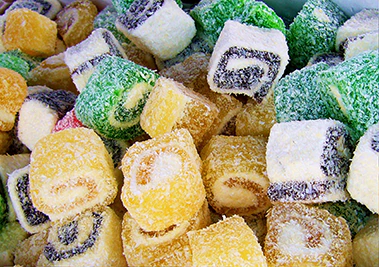| Essence |
Sodium Citrate or E331 is a Sodium Salt of Citric Acid that presents itself as a white crystalline powder that has no smell and that is commonly used in food, supplements, and also medications for different applications. There are three different Sodium Citrates: 1) Monosodium Citrate or E331(i), 2) Disodium Citrate or E331(ii), 3) Trisodium Citrate E331(iii). |
| Names |
Sodium Salt of Citric Acid, Sodium 2-hydroxypropane-1,2,3-tricarboxylate, Citric acid trisodium salt, Citrosodine, Sour salt, CAS 68-04-2, E331, Sodium Citrate, and others. |
| Sourcing |
Glucose is the most common starting ingredient, however, Sucrose, Fructose, and Molasses can work, too. |
| Manufacturing |
To create this additive, Citric Acid (E330) has to be made first (effectively, inoculation, fermentation, purification). Then, that ingredient is mixed with either Sodium Hydroxide or Sodium Carbonate. Temperature, pH levels, and stoichiometry, as well as the physical form of Citric Acid, will affect what Sodium Citrate is made (Mono-, Di-, or Tri- version). |
| Application |
Acidity regulator, preservative, emulsifier, bulking agent. Highly soluble in water. |
| Acceptable Daily Intake |
Supposedly, it is safe in amounts of up to 30 milligrams per kilogram of body weight. |
| Side Effects |
In theory, it could have in part all of the same potential side effects as Citric Acid (E330) does (in particular, regarding GMOs and overconsumption). Additionally, high amounts of it can cause stomach issues like bloating, diarrhea, and flatulence. Also, high amounts of it could potentially disrupt electrolyte balance which can lead to irregular heartbeat, muscle weakness, and even seizures. Sodium sensitivity will obviously cause negative effects, too. |
| Benefits |
Potentially, it can help regulate the body’s acid-base balance which can prove to be helpful to people with metabolic acidosis or kidney disease. It can also work as an anticoagulant. It may also be helpful to bone health. |
| Studies |
3,765+ studies on Pubmed. 125+ studies on safety. |
| Allergens |
It may or may not be created from Corn. |
| Diet Restrictions |
None. |
| Health Knight Assessment |
Typically Harmless. | Hence, it’s a Category 1 Additive. |
| Products |
Sodium Citrate (E331) can be found in processed foods like biscuits, cookies, candy, soft drinks, tea drinks, yogurts, pastries, instant noodles, potato chips, sausages, flavored waters, and more. |



